With the adoption of electric cars only accelerating as manufacturers put more and more money behind them, as ZEV mandate legislation pushes their adoption ever harder, and as customers move in greater and greater numbers to trade in their combustion-engined cars in favour of them, one main barrier to ownership looms in the minds of those unsure whether an EV will meet their needs: the charging question.
How and where will I charge? How long will it take? And is the infrastructure in place?
For most owners who’ve already adopted, and many of those still to, home charging is and will remain key to making an EV practical. But for plenty of others, home charging will never be possible, and urban charging infrastructure on residential streets is proving slow to appear.
Public DC rapid charging, then, will remain critically important for a great many, and for a considerable time to come. But even now, there are big differences in the rate at which one electric car may be capable of charging, out in the real world and away from the spec sheet, compared with another. So how fast can new EVs charge right now, assuming you find the right charger? And which are the quickest?
Since the autumn of 2022, Autocar has been benchmark testing the rapid-charge performance of all electric cars that undergo our full road test, and below you can see the results. They reveal several important facts: that true charging speed can be a far cry from any car’s claimed peak rate, when you calculate an average across the full breadth of available battery capacity. Also, that the rate of rapid charge of all EVs should be expected to slow down considerably as their batteries fill up. Some cars, however, slow considerably more than others.
How we test electric car charging speeds
Our approach to our rapid charge test is simply to use a rapid charger of sufficient capacity to meet the test car’s peak charging rate; and to observe and record how much power is actually drawn by the car as it passes a 10%, 30%, 50%, 70% and 90% state of charge (SOC).
Practicability dictates that we cannot use the same DC charger for every test and, while we pre-condition the car’s battery before charging where possible, many EVs don’t allow this once battery condition has dropped below 10%.
We then average our test results with a weighting that reflects the need that rapid charging typically meets for EV drivers. Public rapid charging is relatively expensive compared with home charging. Most use it to extend the range of their cars for a particular journey, rather than as a regular habit, and as a result few rapid charge from less than 20% charge, or to beyond 80% (because doing that isn’t time-efficient or beneficial to battery longevity).

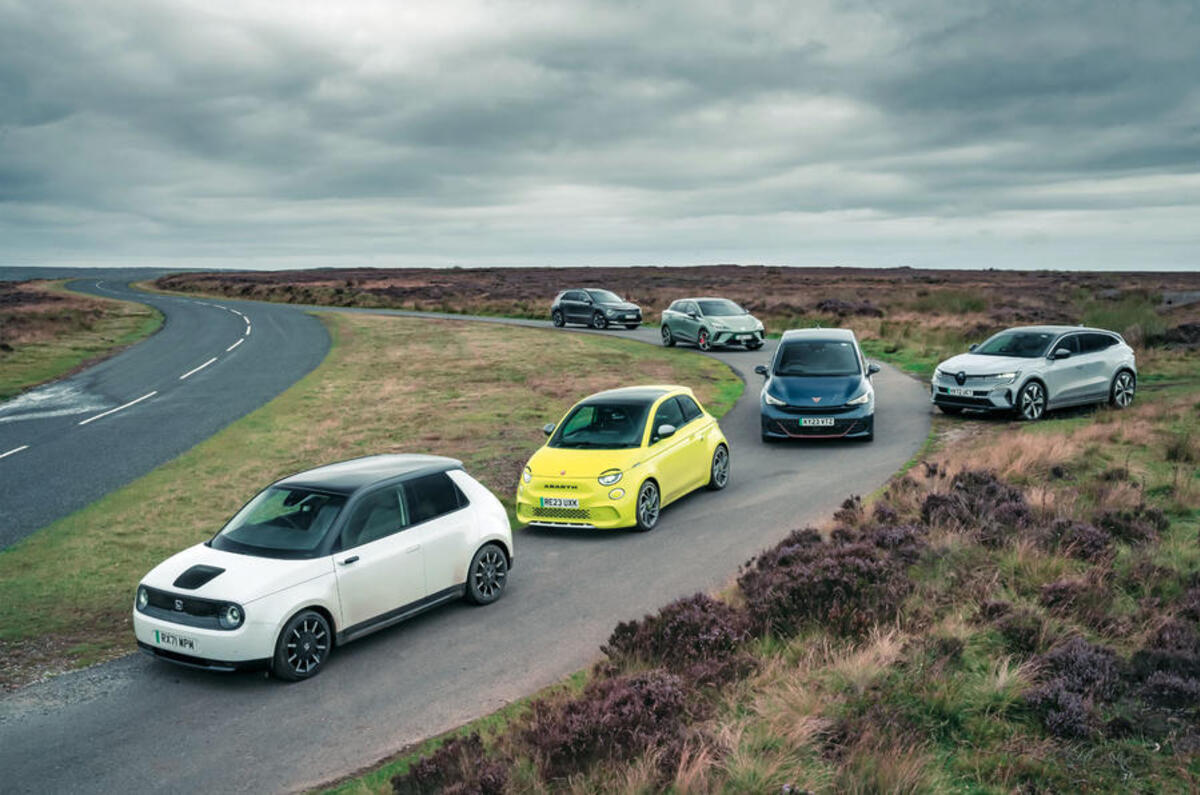












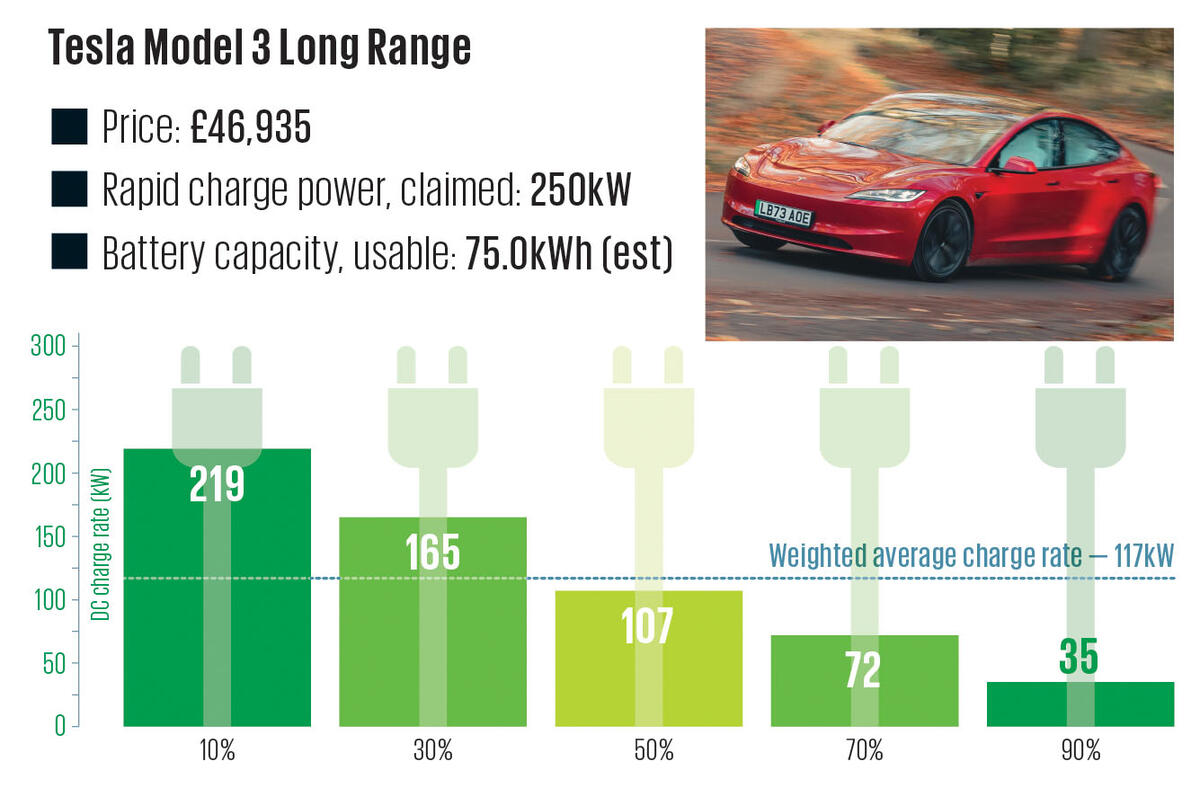




















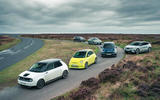




































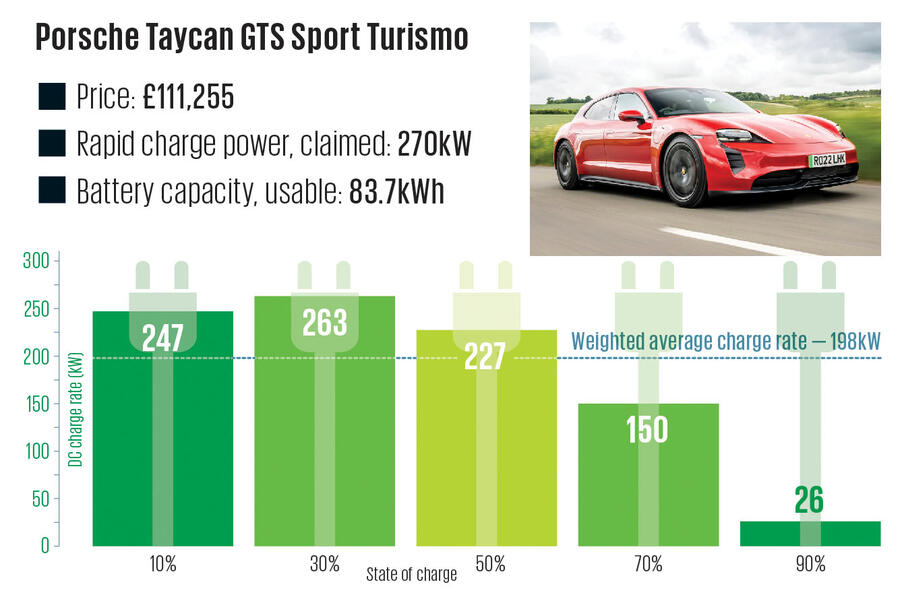
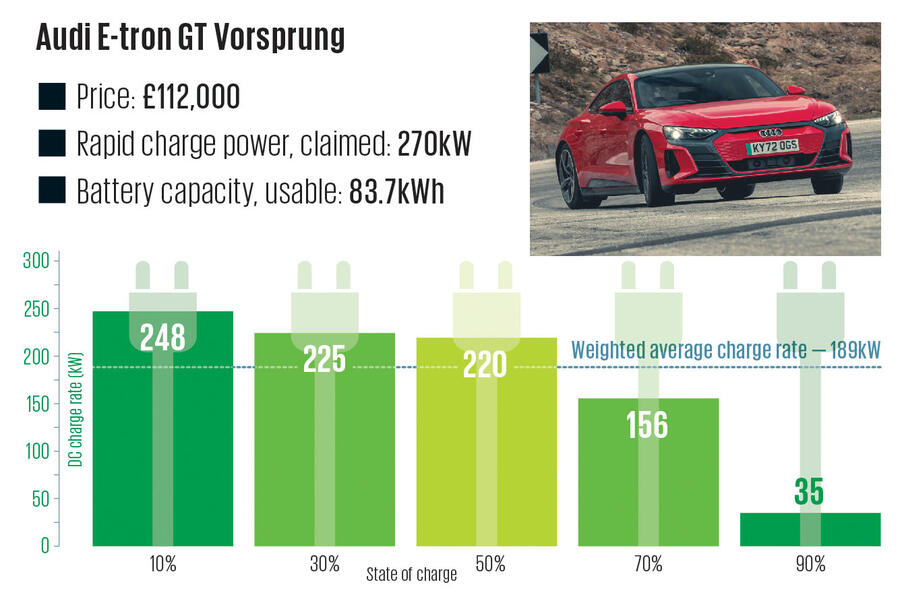
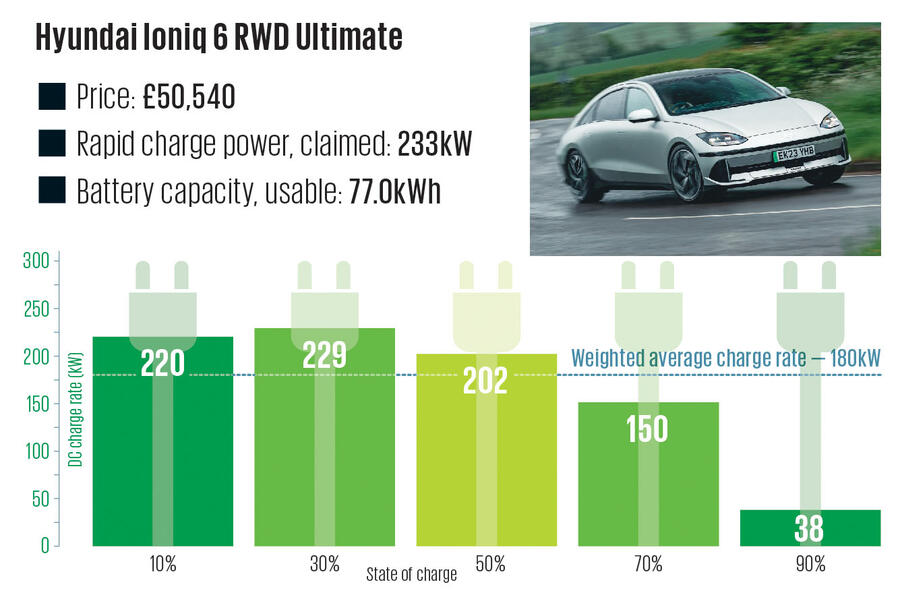
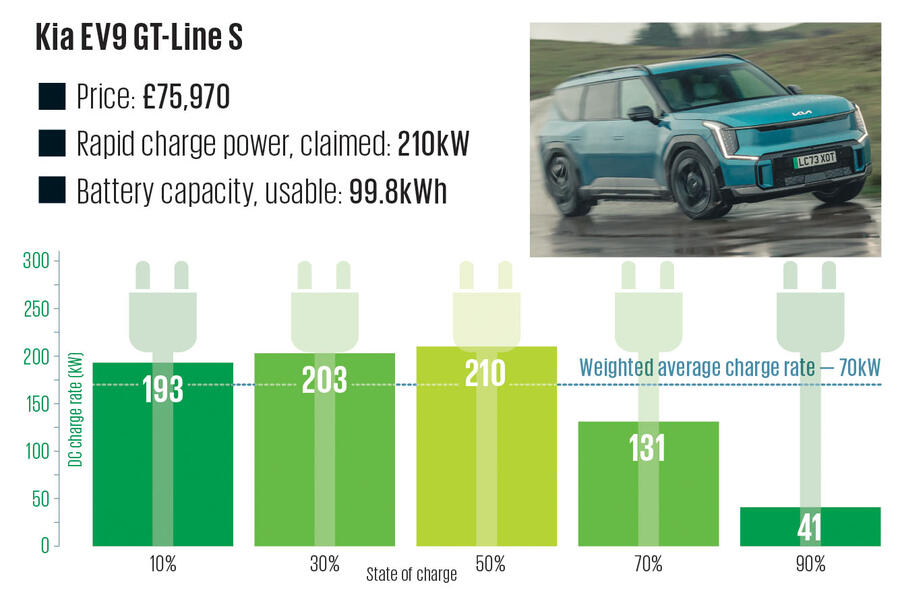
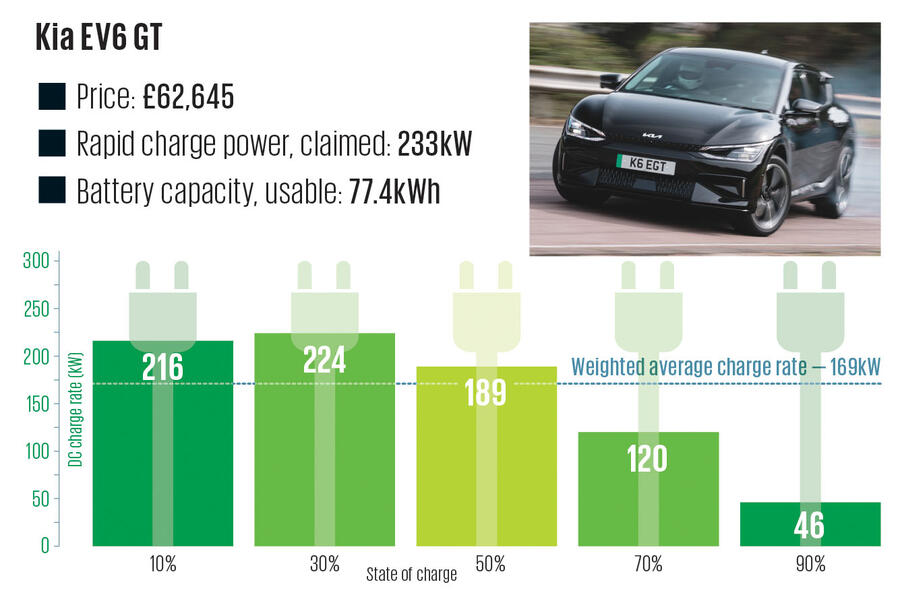
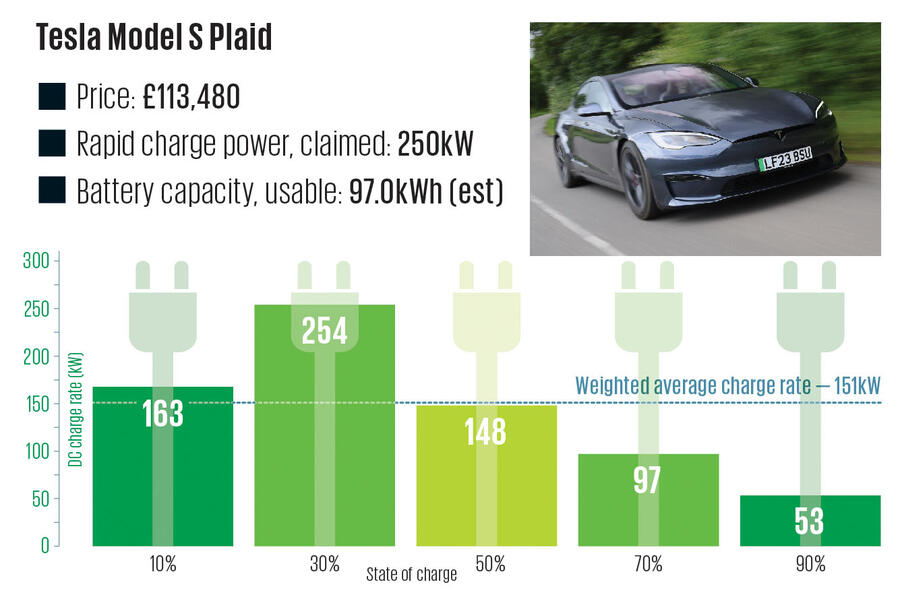
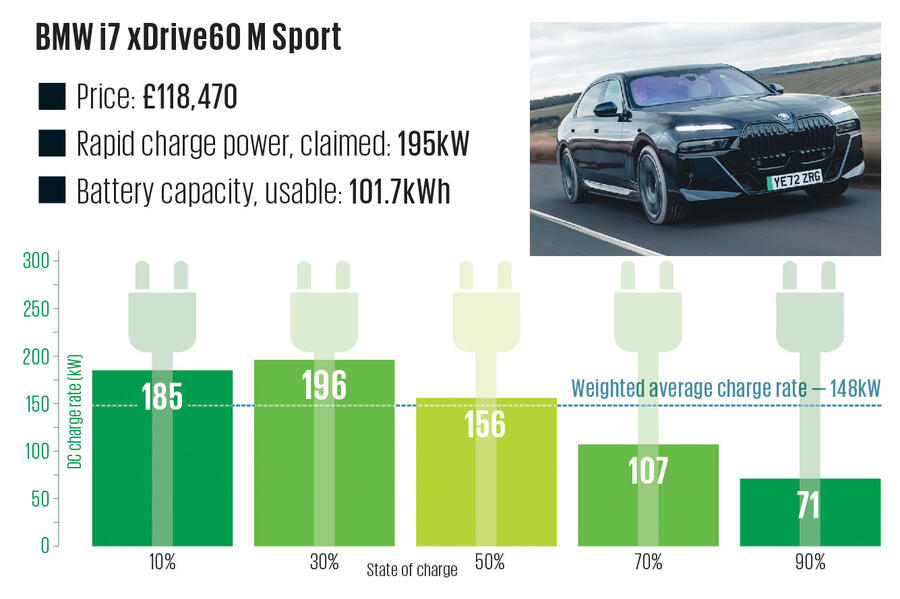
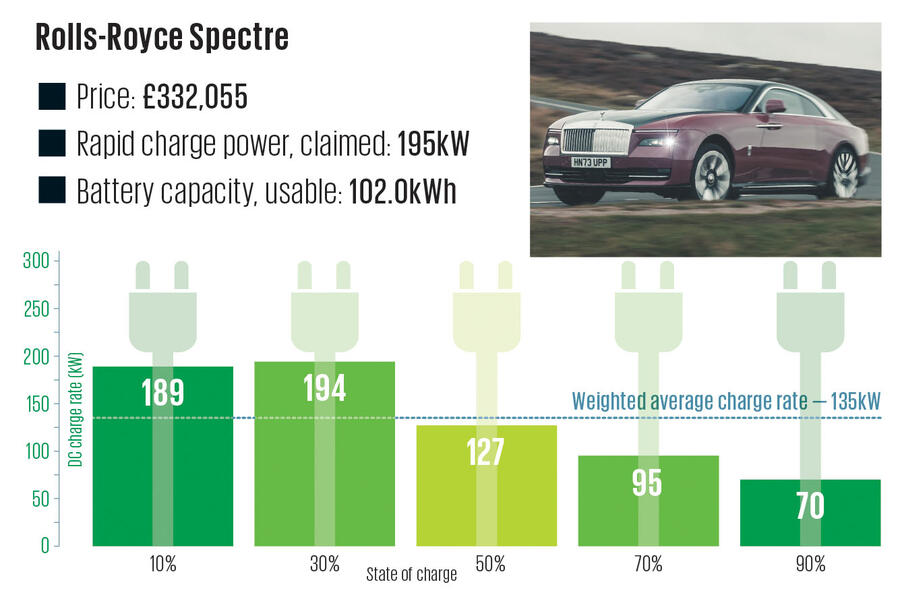
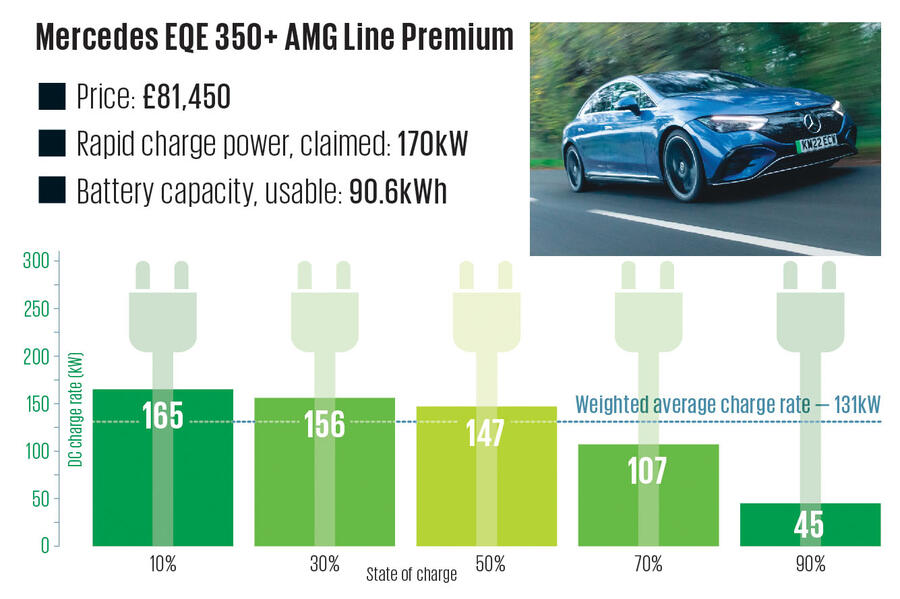
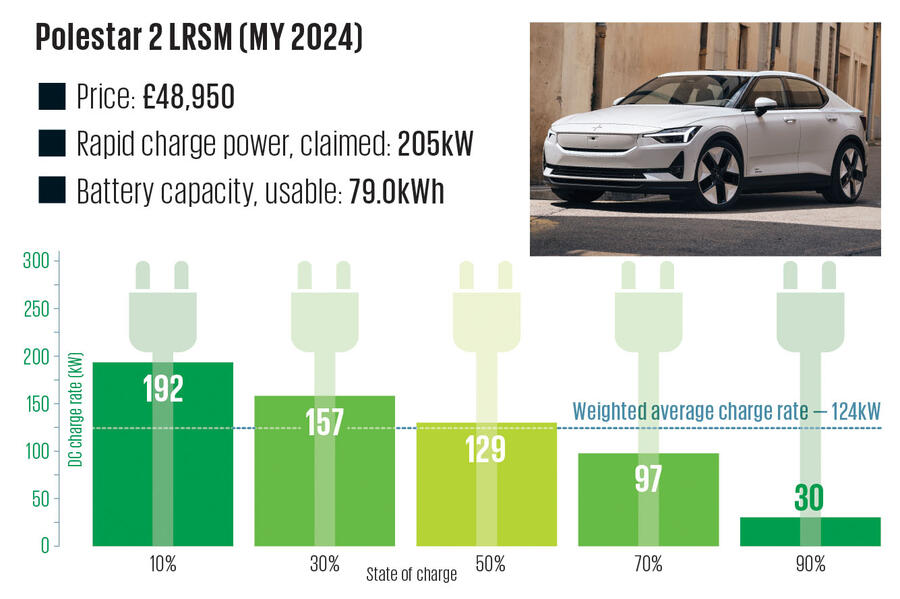
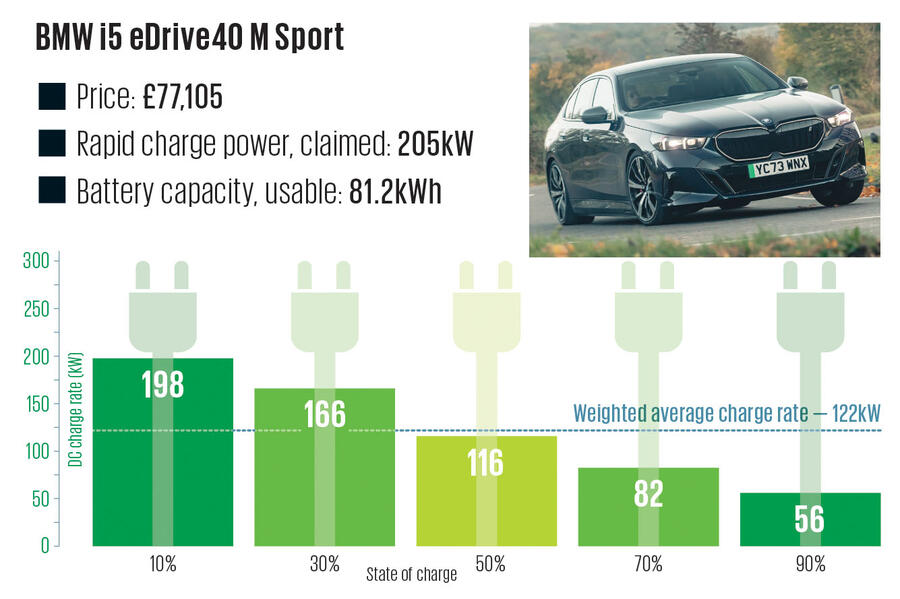
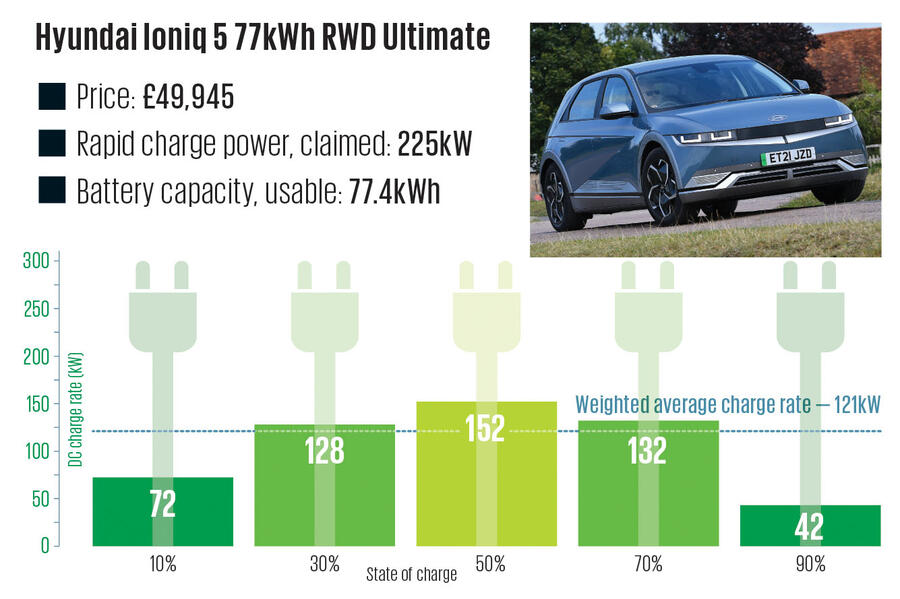
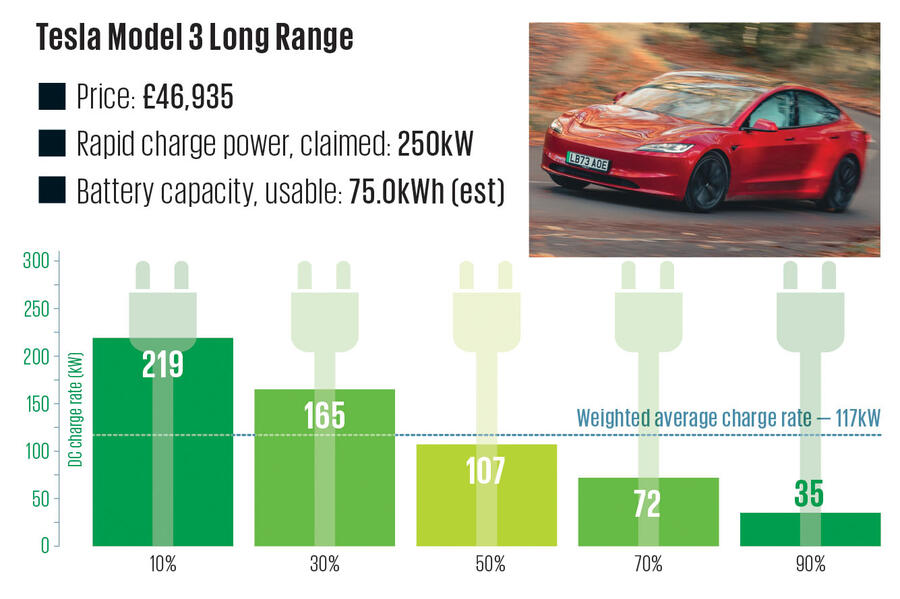
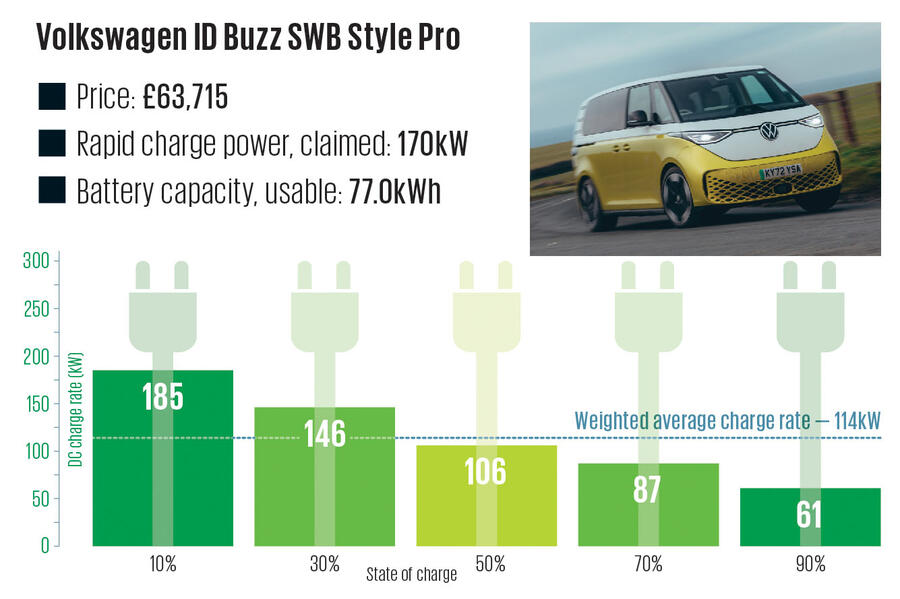
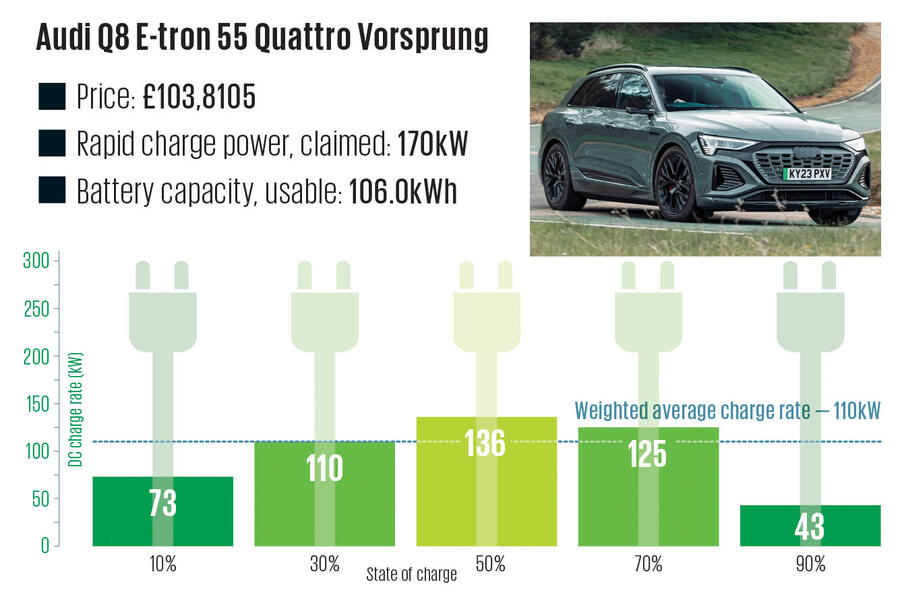
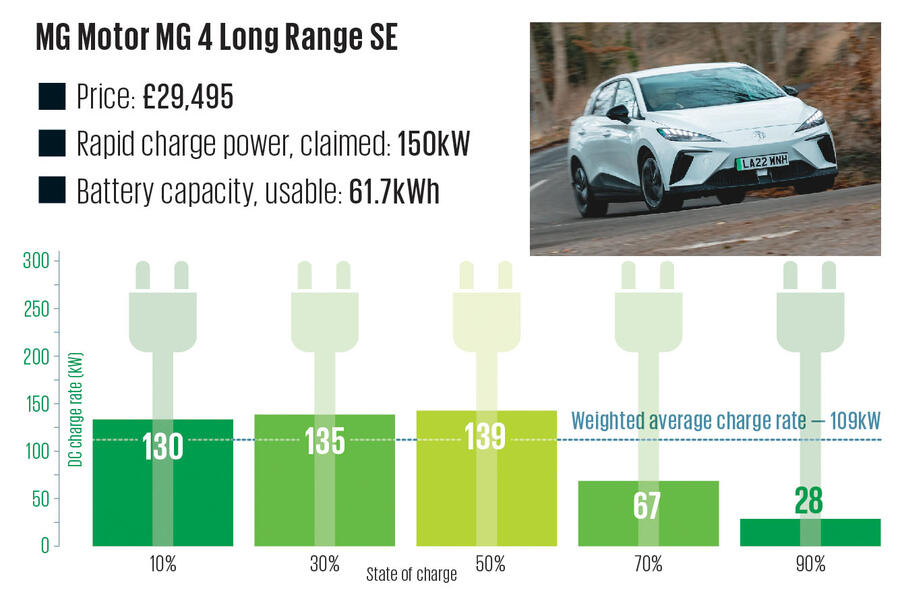
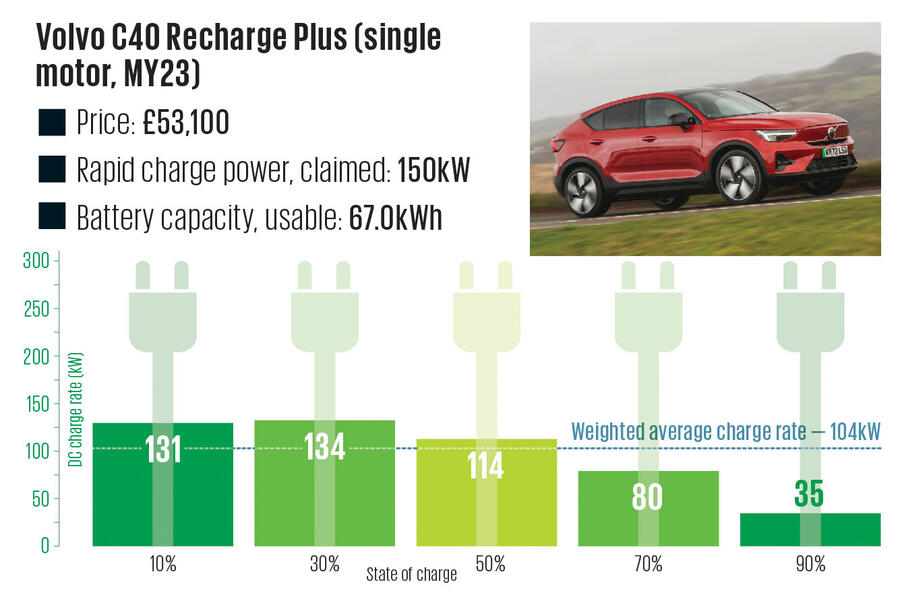
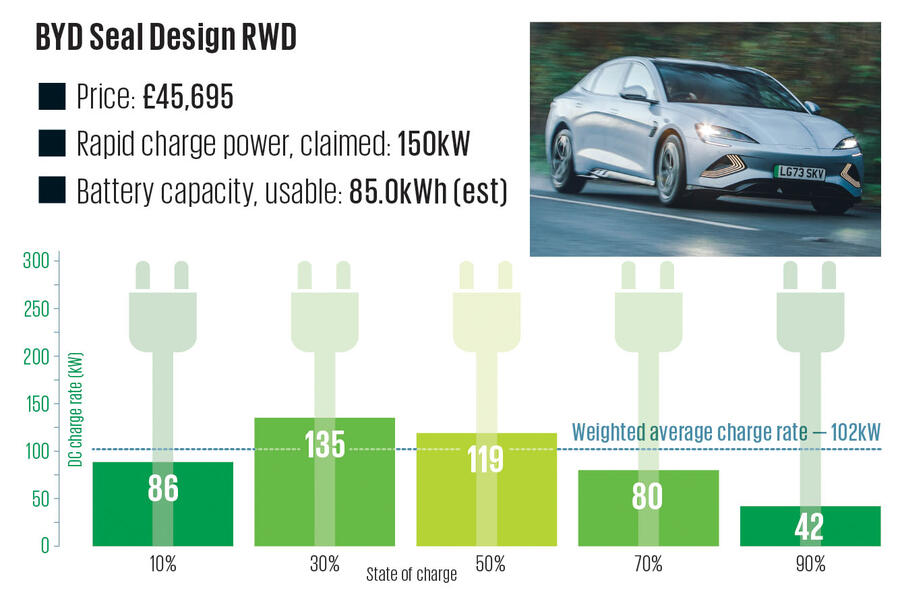
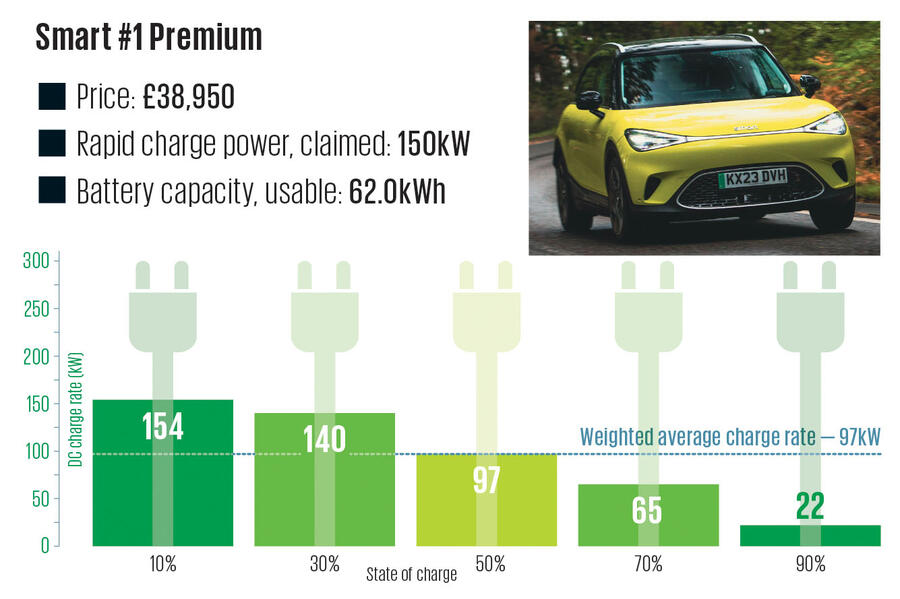
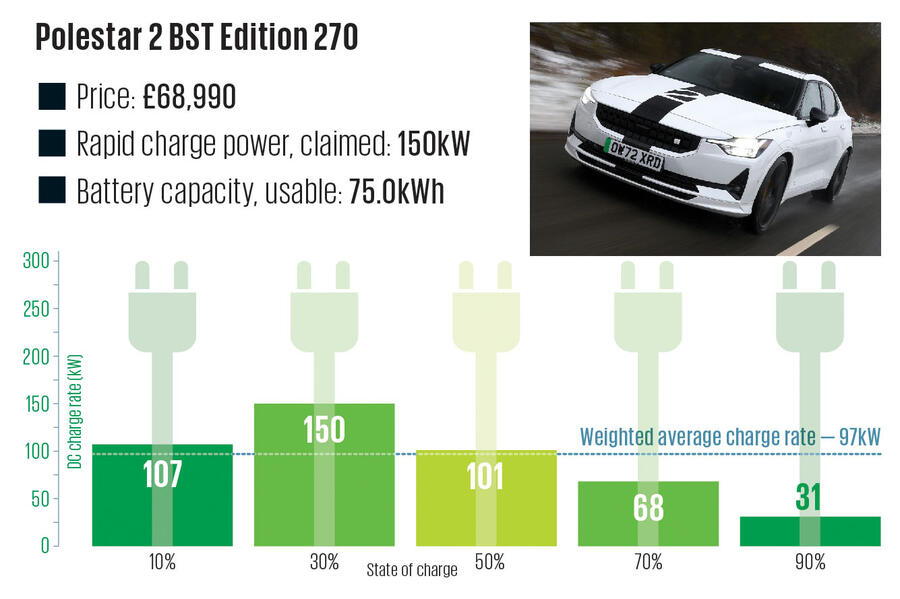
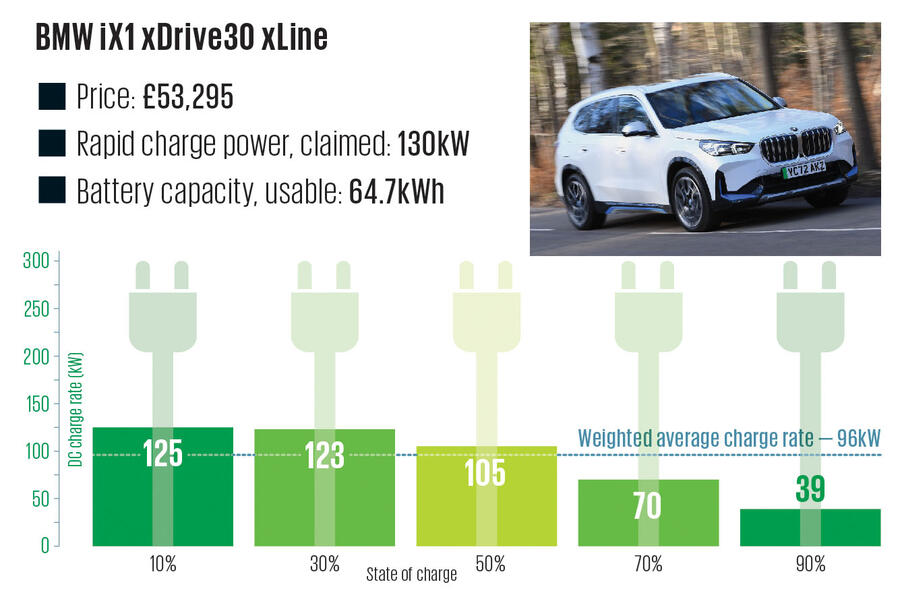
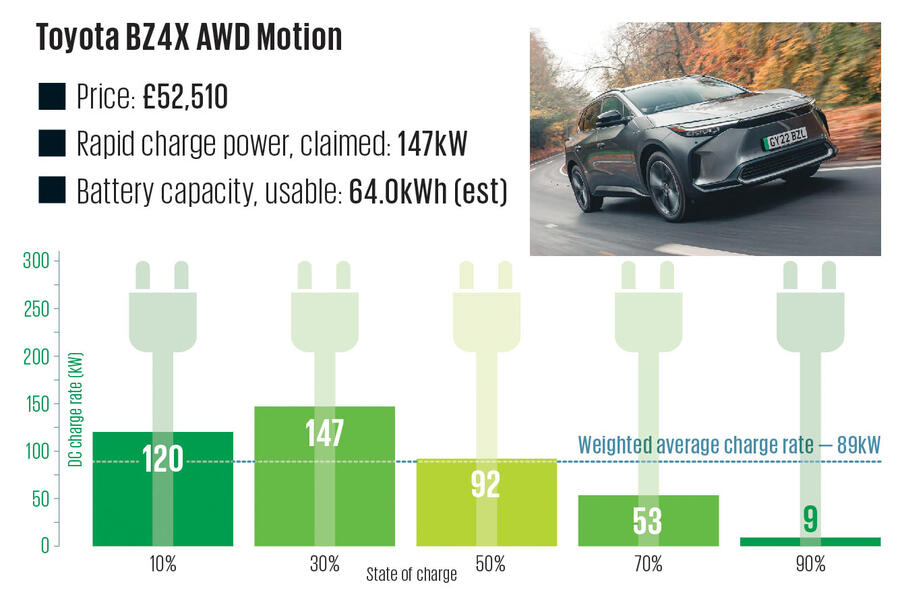
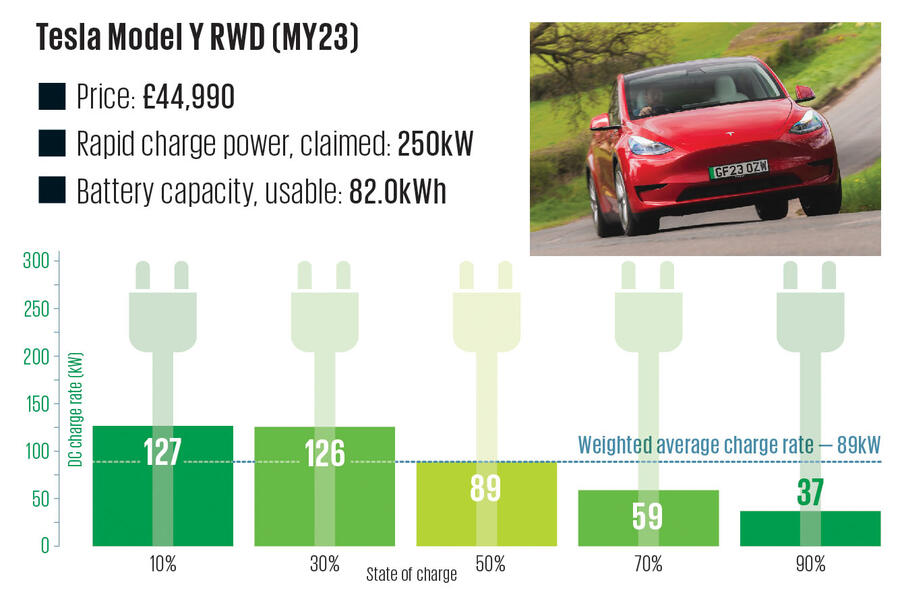
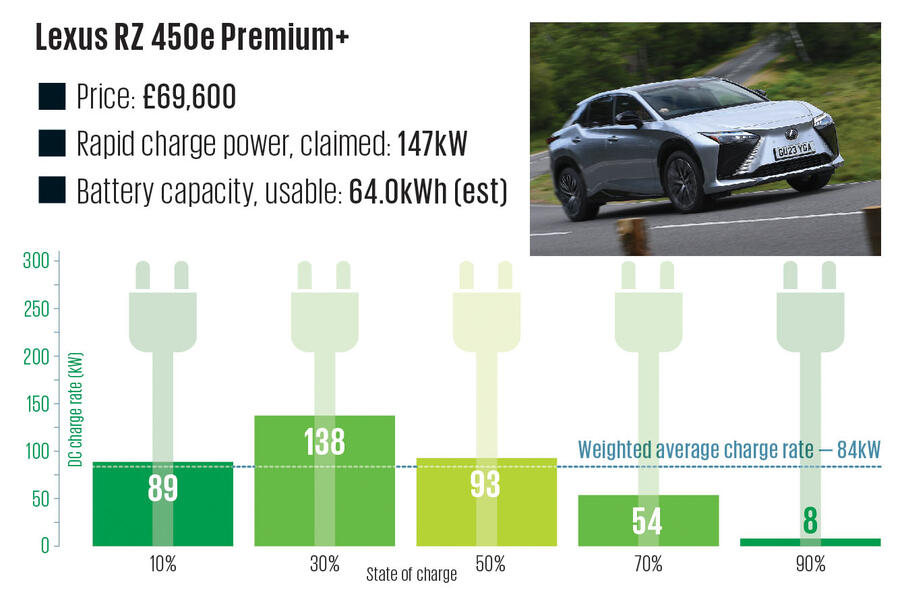
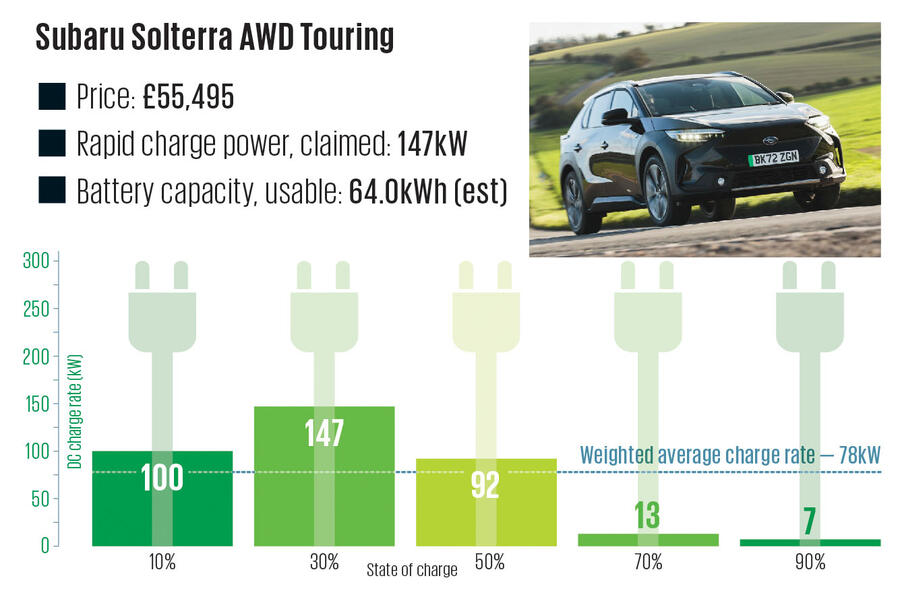
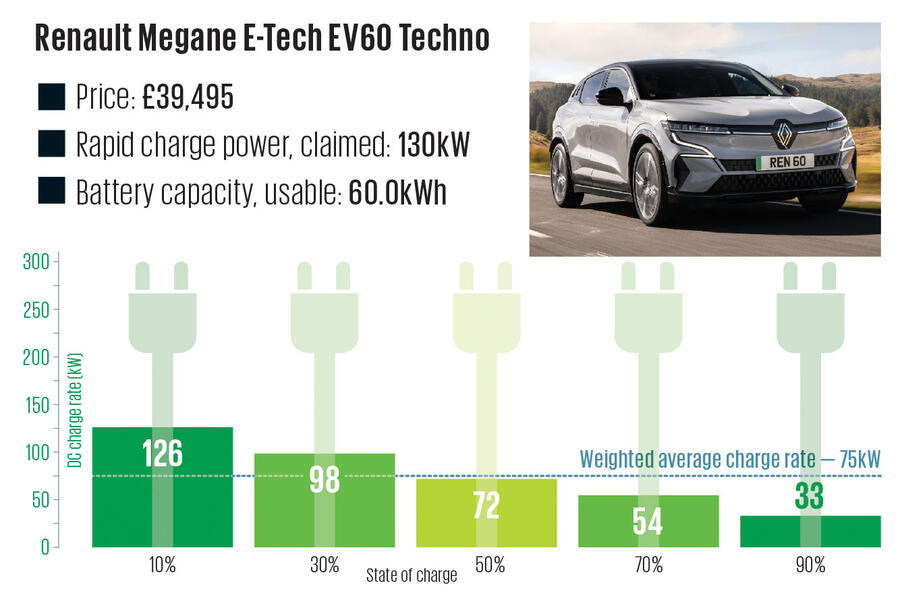
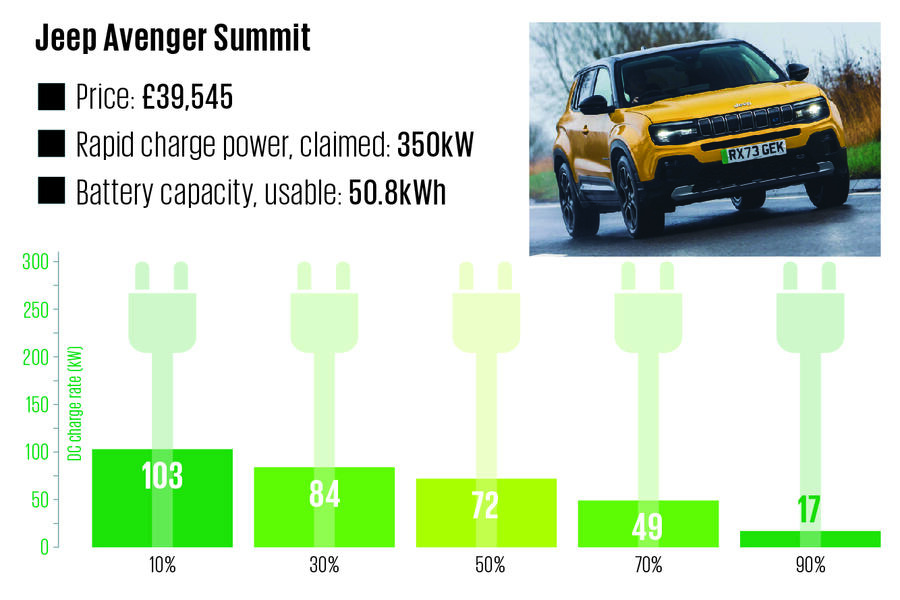
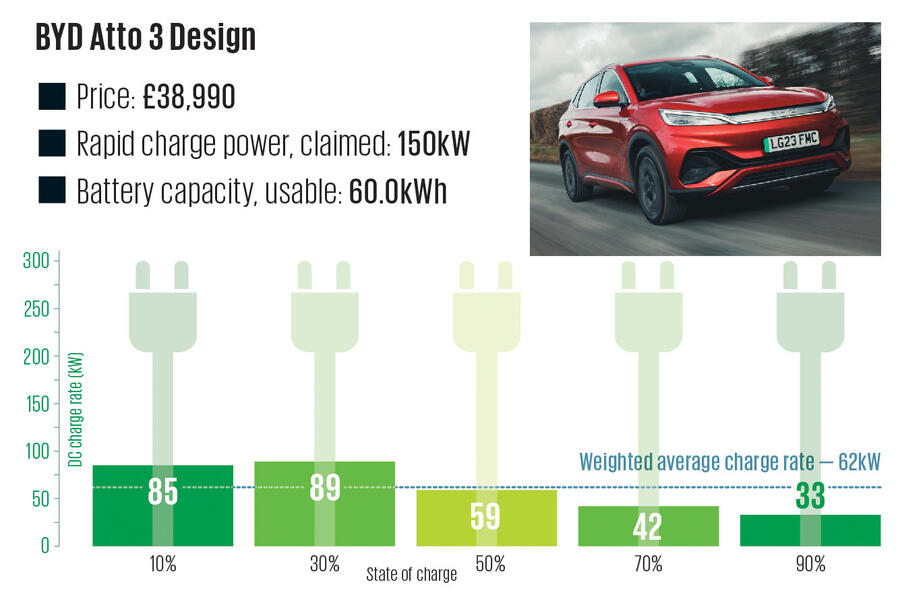
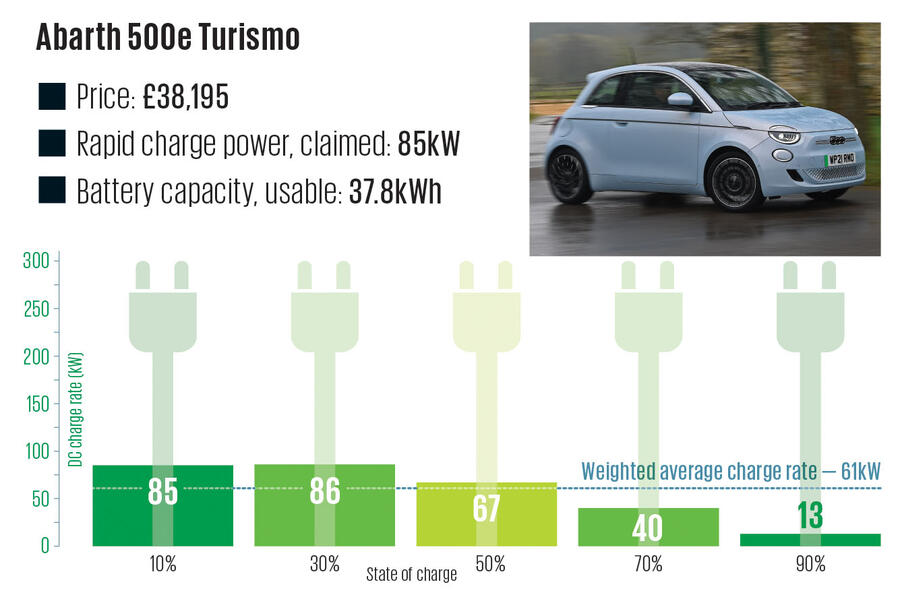
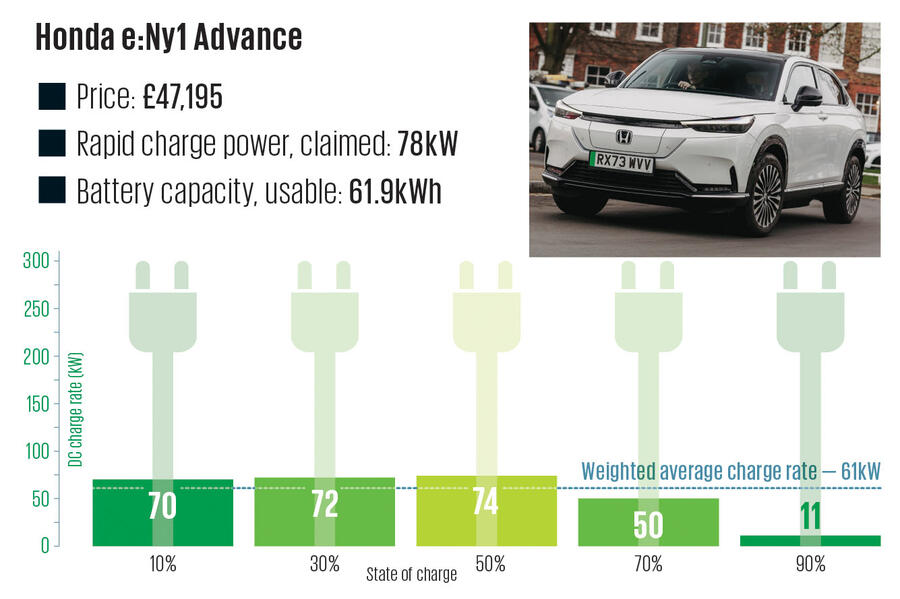
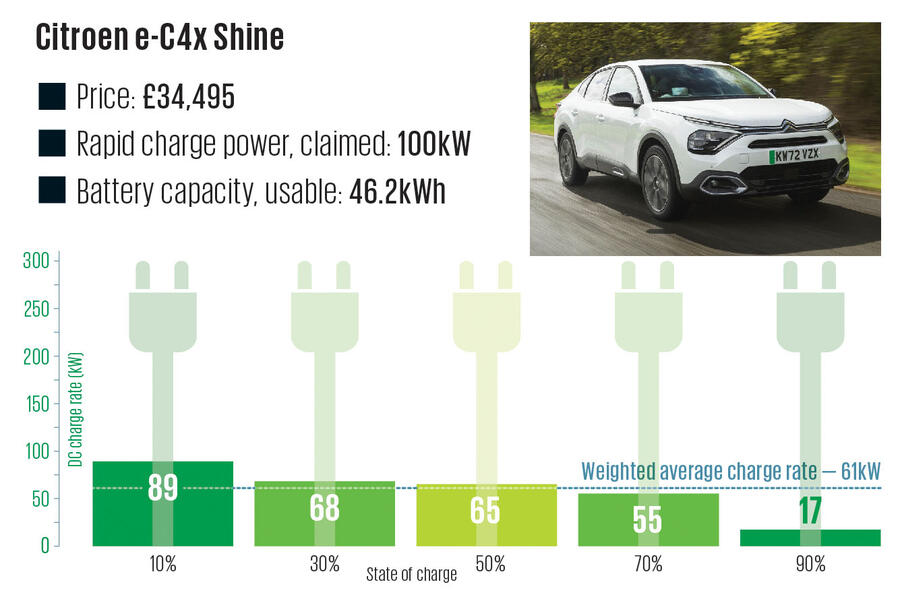
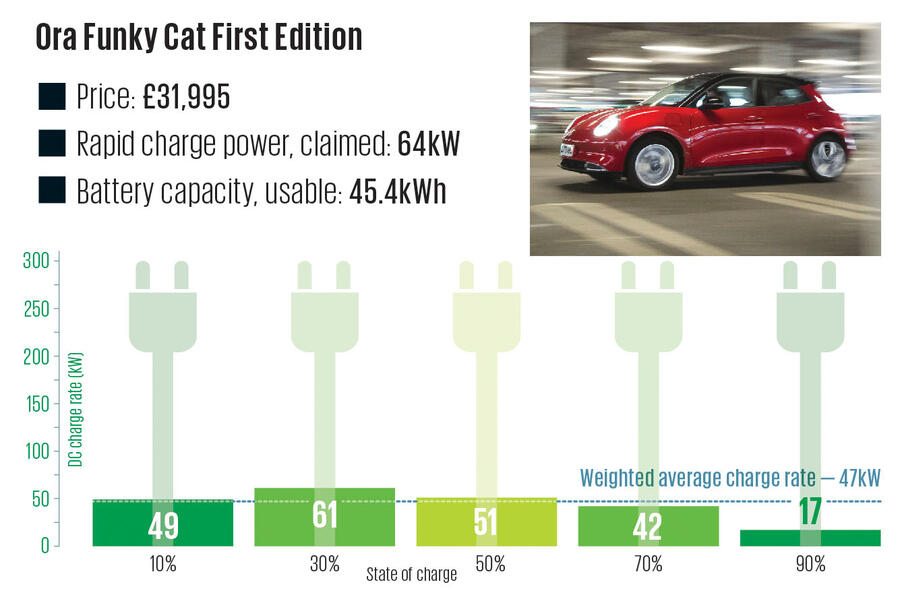
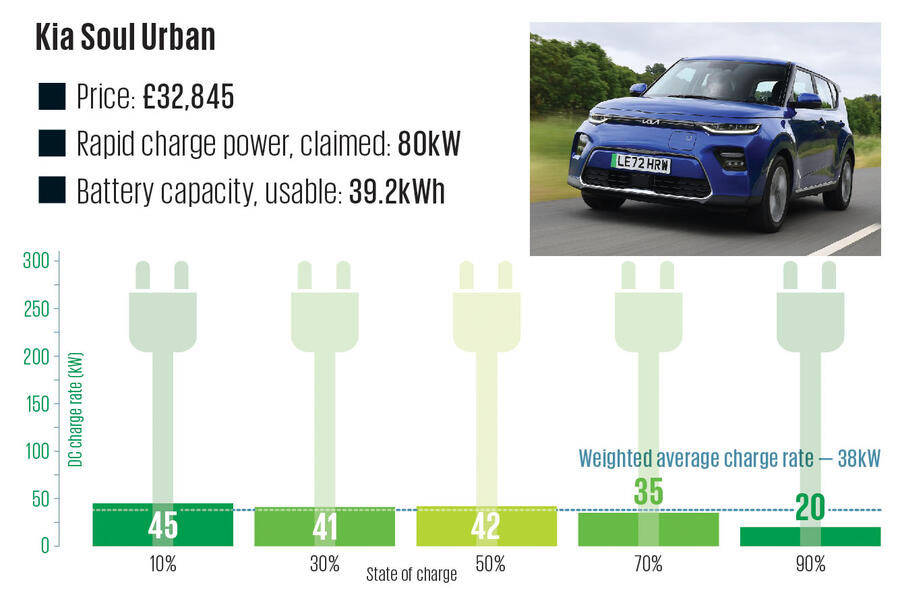






Join the debate
Add your comment
The issue is range anxiety.
Why don't you measure something more useful like "how long does it take to add 100 miles of range"?
You could do that at different criteria: 20% remaining or at 20 miles remaining.
Assume these charging times factor in the 50-90 minute wait for a charger due to them being taken/majority non-operable/incompatible/in de-rated mode/the wind is blowing in the wrong direction do they're on strike?
Well, having read all the posts below, there seems a lot of factors to get right to running an EV efficiently, as you guessed I'm not an EV owner yet, it's inevitable that I will be but the amount of stuff to remember and other than better for the environment and cost saving, although that will go up to replace lost ICE Taxes, it almost makes Ev's a pain, the weather, pre heating the battery and so on, a breakdown on running an EV for a year would help also.
Not remotely.
Buy a bog-standard Toyota Landcruiser. You can ignore all the considerations you mention - and just put fuel in and maintain at the bare minimum prescribed by Toyota. Untroubled motoring for decades.EV maintenance costs are demonstrably higher - the figures are readilly available.